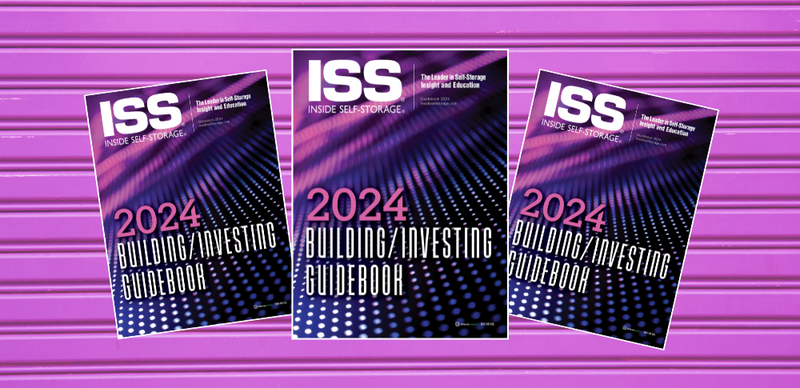April 1, 2004
At the beginning of every year, the topic of discussion at most companies is, “How do we increase revenues?” The answers are typically the same: introduce new products, increase sales activity and—one of the newest strategies—branch out globally. The latter is much easier said than done; but I am here to tell you, the venture is well worth the effort.
My experience with international business started years ago at the first trade expo I ever attended. I was giving a demonstration on our access-control system to a gentleman from Brazil and was asked if our keypads spoke Portuguese. Not knowing the answer, I asked him to bear with me while I found out, almost laughing to myself, “There is no way our keypads speak Portuguese.” To my surprise, the answer was yes. It turns out our keypads speak eight different languages!
At that time, our company did not have many international customers. But we had the ability to offer our products and services to many different countries, so why not? The simple answer was technology was not where it is today. The main ingredients used to build a successful business are a lot more complex when you have to cross the globe to do it. How do you support your customers? Is there a language barrier? How do you handle a difference in currency? These are all questions that have to be answered.
With improvements in technology, we are now able to offer international clients more than we have in the past, for example, toll-free support lines to make it easier for customers to reach us. In some instances, the time difference is too great to serve them on the phone, so we also offer a trouble-shooting section on our website to help them through those difficult times. E-mail offers another option for servicing international clients—60 percent of the international business I conduct is done via e-mail.
A Solid Network
Having good dealers and distributors is one of the key ingredients to a successful overseas business. In Australasia, our operation is run by one exclusive distributor that handles customer support and sales from a central location. The key to the relationship’s success is giving the distributor all the tools and support necessary to run a successful distributorship. In this case, the distributor’s team has spent numerous hours educating itself on our product line as well as learning how to support the products. Because of the great efforts the company has made, it is now able to operate with minimal assistance from our corporate headquarters.
Taking your business global by no means happens overnight. You have to be patient while building your customer base. It is a difficult task to earn the trust of prospective clients overseas, as they are unsure if you will be there for the long haul. Would you want to do business with a company you were not certain would be around in a year? Our global business has increased every year since we attended our first overseas tradeshow, and I think that relates directly to our support of the international self-storage associations.
The first year our company attended international expos, our booth did not receive a lot of attention. In the past, too many American companies have exhibited for one year, never to be seen again. This has caused the international market to be very wary of new entities. As an established U.S. self-storage supplier, it is a very humbling experience to have to explain time and again that your 28-year-old company is hardly a new player in the market; but the reality is, in the eyes of international storage professionals, that is exactly what you are.
At our first Australian expo, we met a gentleman who summed up the experience quite well. He was looking over our goods in the tradeshow hall and, on hearing our corporate history, gave us some really sound advice: “Be patient,” he said, “Quite often, things here work on the ‘mate network.’” Puzzled, I asked what that meant. He explained that if his mate (friend) had something that worked and worked well, it would be good enough for him, too!
Patience and Particulars
Going into a new self-storage market with the expectation of being an instant success is not only shortsighted but a surefire recipe for failure. You must be able to see the big picture, break it down into the smallest detail, and plan accordingly. The old saying sums it up: “God is truly in the details” when you are dealing with a project a continent away.
We have encountered our share of resistance when entering international markets. Some of it comes from the trade associations that put on the expos, and their perception of our organizations and the motive that might have brought us to their doorsteps. Some of the hesitancy comes from established competitors who do not want you to get in on the good thing they have made such efforts to establish. Once the business starts rolling, these things seem to work themselves out; but getting to that point can really try your patience.
Educate yourself about the market you are trying penetrate. Understanding the business climate as well as the business culture is probably the most demanding challenge when trying to crack a new marketplace. For example, in Europe, developers are more likely to do a conversion or retrofit than a new build. Multistory buildings with multiple entry doors prevail over single-story sites with only an automatic gate at the front. This is just one of a long list of differences we have seen.
The fact that there are more facilities within 50 miles of New York City than in all of Europe tells you they have just scratched the surface of what is possible in the European marketplace. As the self-storage industry in the United States is by far the largest, one would assume all of the latest and greatest information would come from there. That is not necessarily true. I have attended shows all over the world and learned something new at every single one.
One of the best aspects of our industry is there really is no right or wrong way to run a facility. Being open to new ideas is paramount when learning about a new market. I am particularly impressed with the way the Australasian market continues to grow. The trade expo hosted by the Self Storage Association of Australasia is always one of my favorites to attend. I learn new ideas every year and often implement them into what we do here in the States.
I find it fascinating and rewarding to experience the culture in other countries. Patience, perseverance and a passion to serve the market you are pursuing will ultimately bring international success—as well as a great opportunity to immerse yourself in the sights, sounds and cultures the world has to offer.
Jon Reddick is vice president of Sentinel Systems Corp. of Lakewood, Colo., which has manufactured self-storage software and security systems since 1975. Mr. Reddick has extensive experience in sales and marketing in the electronics and telecommunications industries. He can be reached at 800.456.9955 or via e-mail at [email protected]. For more information, visit www.sentinelsystems.com.
You May Also Like





